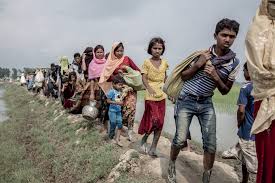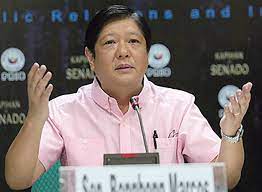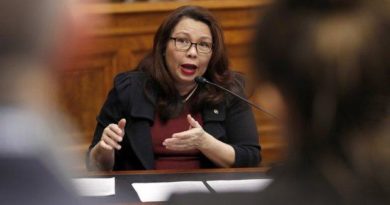ASEAN: Column – S.E.A.View – Challenges ahead for S’pore’s Asean chairmanship
Problem areas include code of conduct on South China Sea and plight of Rohingya in Myanmar
.
Philippine President Rodrigo Duterte wrapped up his chairmanship of the Association of South-east Asian Nations (Asean) by hosting global leaders in Manila earlier this month. Among those in attendance were no less than the United States President Donald Trump, Japanese Prime Minister Shinzo Abe and Indian Prime Minister Narendra Modi, who expressed their commitment to continued engagement with South-east Asian states.
Singapore now takes over the chairmanship.
With the regional body celebrating its 50th anniversary, there were expectations of diplomatic breakthroughs, but Asean’s track record this year was, at best, mixed.
As the new chairman of the regional body, Singapore confronts the challenge of ensuring regional integration is anchored by a rules-based order in accordance with international law.
Undoubtedly, Mr Duterte was the biggest strategic winner of the Philippines’ rotational leadership of Asean. He adeptly leveraged the occasion to present himself as a legitimate sovereign leader amid an international outcry over his brutal crackdown on suspected drug dealers. No major foreign leader publicly confronted Mr Duterte over the issue. The Filipino leader also projected himself as an international power broker, hobnobbing with superpowers over key strategic issues. In particular, under Mr Duterte’s chairmanship, the Philippines steered Asean towards a tougher stance against Pyongyang.
In its joint statements this year, the regional body consistently expressed its “grave concerns” over the “provocative and threatening actions” of the reclusive regime. North Korea’s key trading partners in the region have either entirely cut off trade and financial ties, as has been the case with the Philippines, or dramatically scaled them back. Given the historically close ties between South-east Asia and North Korea, Asean’s buy-in has been crucial to the effective implementation of the global sanctions regime against Pyongyang.
Still, as Asean chairman, Manila has consistently emphasised the necessity of maintaining functional communications channels with North Korea to facilitate a return to the negotiating table.
.

.
With the dissolution of the Six Party Talks platform, the Asean Regional Forum remains the sole multilateral mechanism through which Pyongyang directly engages its immediate neighbourhood.
In the light of the threat posed by Islamic State in Iraq and Syria elements, which laid siege to Marawi City in the Philippines for several months, Mr Duterte also placed counter-terrorism at the heart of regional discussions.
Through the adoption of the Manila Declaration to Counter the Rise of Radicalisation and Violent Extremism, the Philippines has sought to encourage greater counter-terror cooperation among Asean states.
This could be achieved in three ways. One is via regular joint patrols in the troubled tri-border of Malaysia, Indonesia and the Philippines; and also, greater intelligence sharing on the movement and financial transactions of terrorist elements operating in the region. Another is joint efforts against religious radicalisation and extremist mobilisation among member states.
The regional body also adopted the Asean Consensus on the Protection and Promotion of the Rights of Migrant Workers, which aims to safeguard and standardise the rights of foreign workers in the region.
On the South China Sea, Mr Duterte oversaw the finalisation of the framework of a Code of Conduct (COC), with Asean and China hailing the successful test of the so-called “Hotline to Manage Maritime Emergencies in the South China Sea” among foreign ministries of claimant states.
A LEGALLY BINDING CODE?
Yet, there are no indications whether the much-anticipated COC would be a legally binding document addressing the root causes of the crisis – massive reclamation activities on, and militarisation of, disputed land features by claimant states, particularly China.
Early next year, the Working Group Meeting on the Implementation of the Declaration on the Conduct of Parties in the South China Sea is set to meet in Vietnam to negotiate the specific provisions of a final document.
As the new Asean-China country coordinator, the Philippines will continue to exert influence on the direction of the negotiations. But there is no clear timetable on its finalisation and Mr Duterte, after his latest meeting with Chinese President Xi Jinping earlier this month, has maintained that the South China Sea issue is “better left untouched” by external powers. As a result, China has strategic carte blanche in the disputed waters.
More worryingly, Asean was woefully silent on the plight of the Rohingya people in Myanmar. This was nothing short of a diplomatic travesty, considering the scale of the humanitarian tragedy and the need to stem the campaign of ethnic cleansing against a helpless minority.
With Mr Duterte taking a tough stance against any international criticism of his own human rights record, he effectively undercut Asean’s moral ascendancy to question Myanmar’s track record.
STEPPING UP TO THE PLATE
On the eve of Singapore helming the group, Prime Minister Lee Hsien Loong outlined Singapore’s key priorities as chair at the closing ceremony for the 31st Asean Summit earlier this month. He said it would seek to ensure the group promotes and upholds a rules-based regional order, to better deal with emerging security challenges in the neighbourhood, such as cyber security, transnational crime and terrorism.
Singapore would also steer fellow members to press on with regional economic integration and enhance connectivity, so as to keep the region competitive and prosperous, he said. PM Lee also congratulated the Philippines for its successful chairmanship. A major highlight was a framework for the Code of Conduct of Parties in the South China Sea.
Indeed as the new chair, Singapore needs to step up to the plate and ensure that Asean effectively operationalises its consensus positions on counter-terrorism, North Korea and the protection of migrant workers. Asean will also have to adopt appropriate measures to address the humanitarian crisis in Myanmar, which has spilled over into neighbouring states.
Observers will also be watching to see how Singapore steers Asean on the South China Sea disputes. The challenges ahead are daunting, but Singapore is arguably the best-equipped member state to lead the way.
• The writer is a non-resident fellow at Stratbase ADR Institute in the Philippines and author of The Rise Of Duterte: A Populist Revolt Against Elite Democracy. S.E.A. View is a weekly column on South-east Asian affairs.
-
Courtesy: The Straits Times |
.










